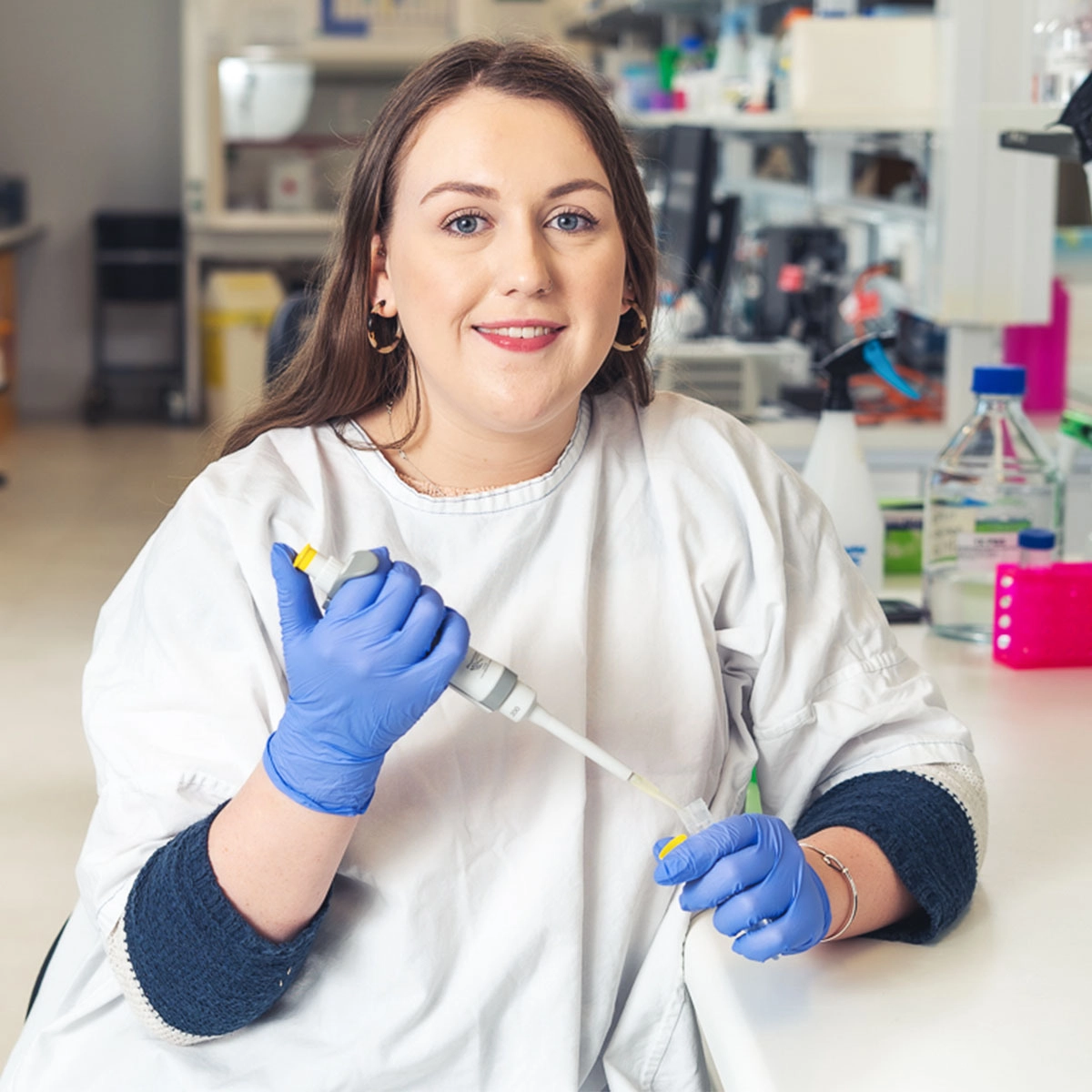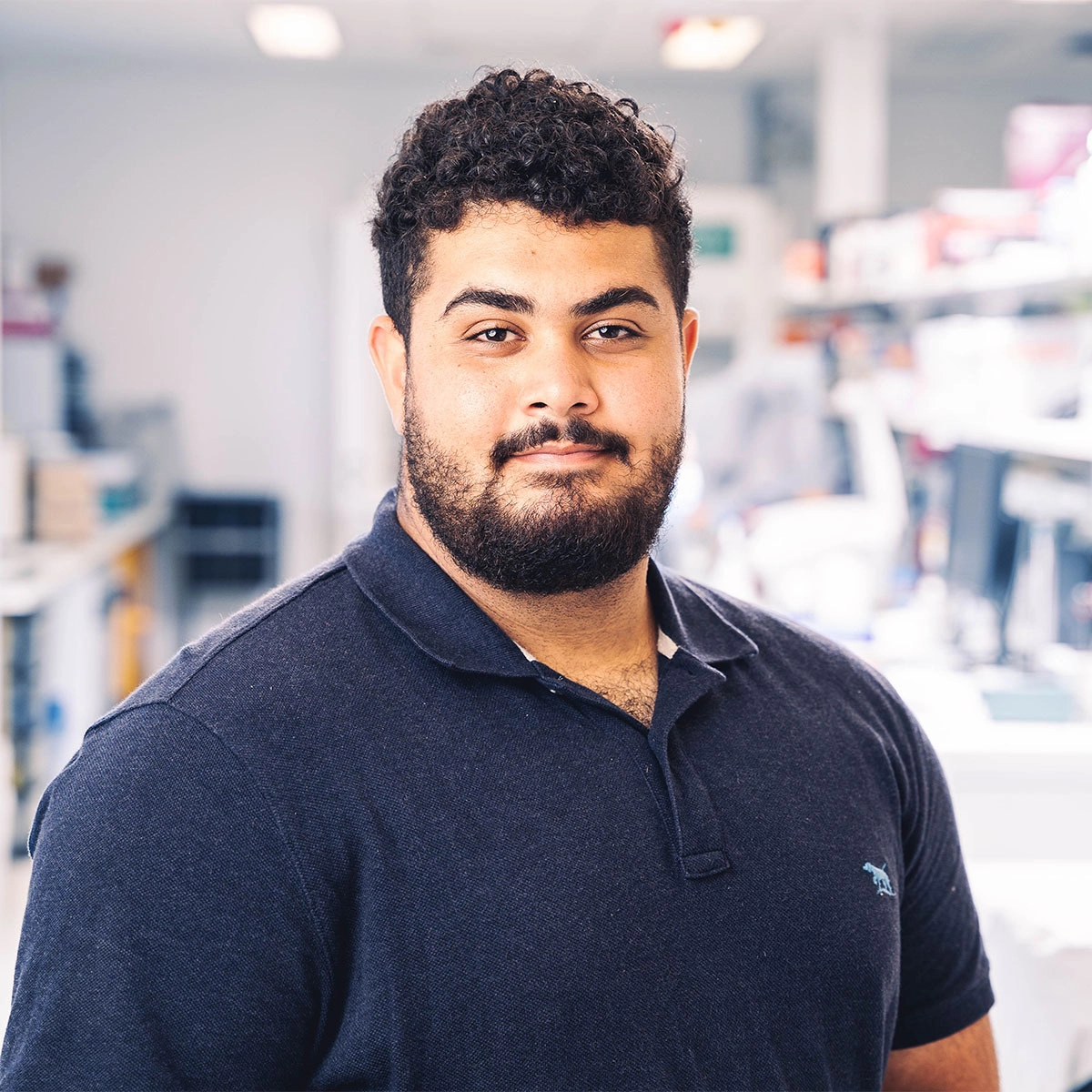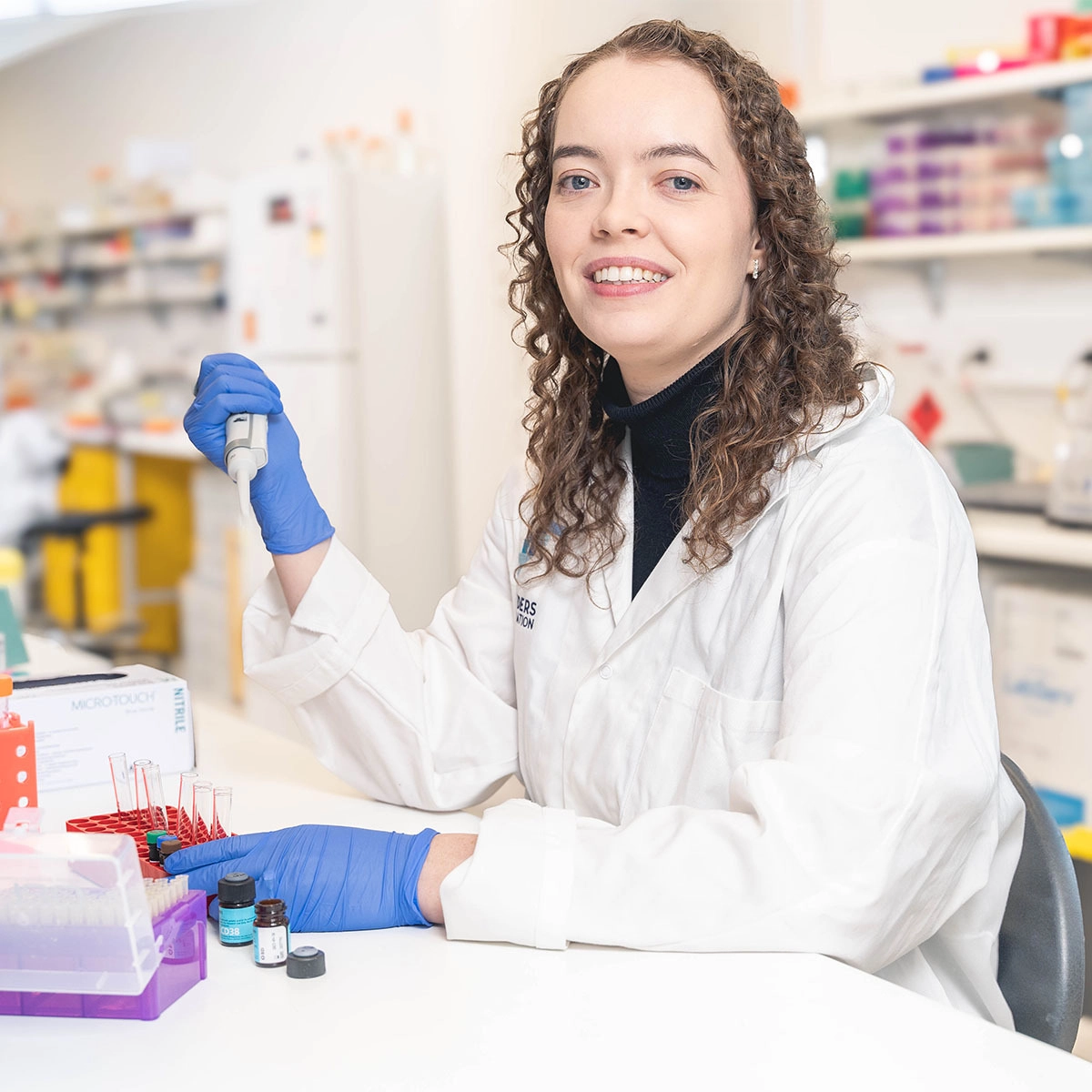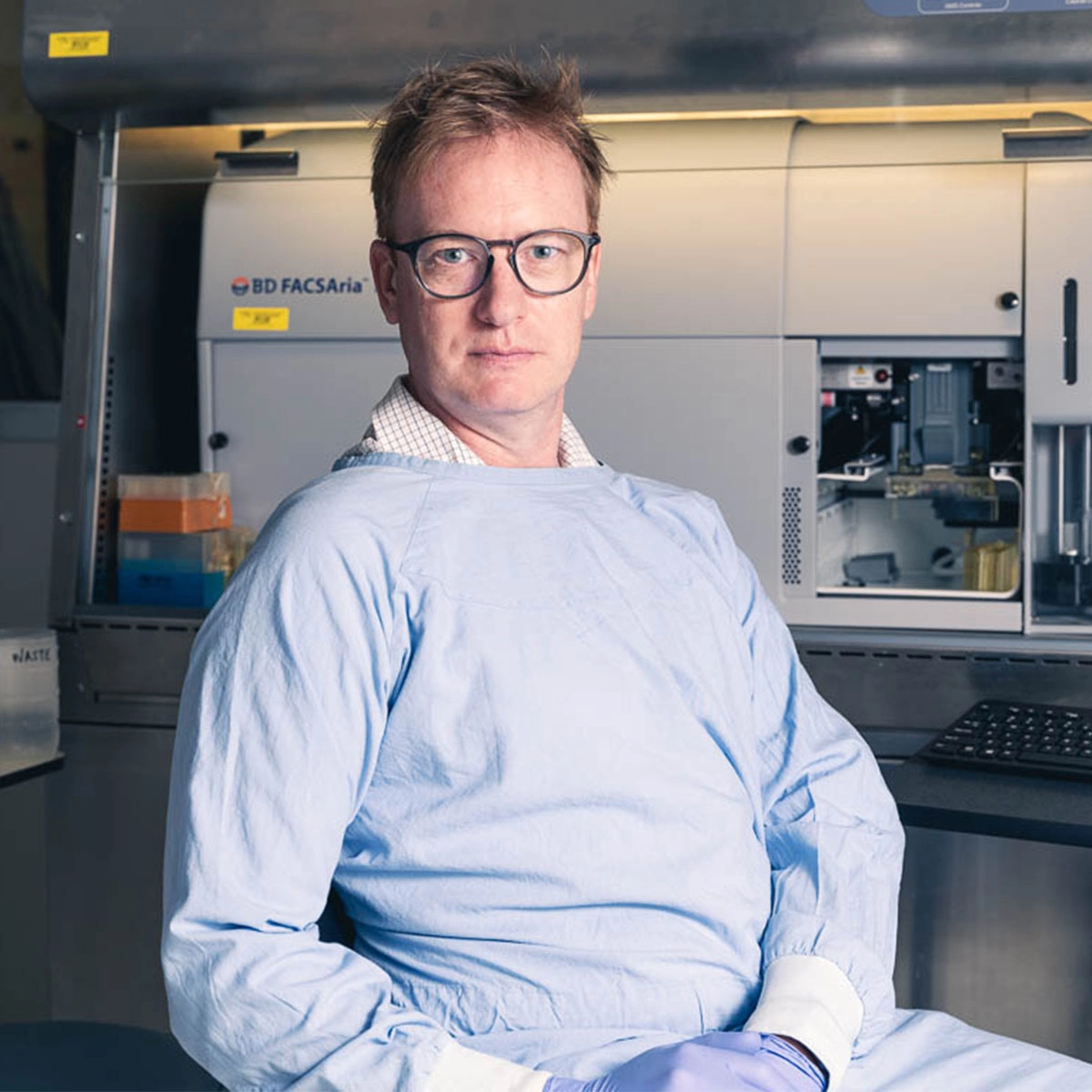Supporting multiple myeloma research

Your support is vital to advancing research
Every donation is a promise that we’re in this together, elevating care, fostering hope and advancing discoveries.
Support research and patient care at Flinders. Donate today
The generosity of our supporters is enabling researchers from Flinders University’s Multiple Myeloma Translational Research Laboratory to tackle multiple myeloma from all angles.
In many cases they’re combining their knowledge, findings and ideas from individual research projects and making exciting progress against this horrible disease.
“Our work has a very clear pathway to developing potentially life changing therapies for people with multiple myeloma,”
says Dr Giles Best, who co-leads the laboratory with Associate Professor Craig Wallington-Gates.
It’s exciting work, and the team are committed to changing the lives of patients and their families.
Let us introduce you to some of the dedicated Multiple Myeloma researchers
Rachel Mynott
Rachel is one of only a handful of researchers worldwide focusing on a newly discovered method of killing cancer cells, called Ferroptosis.
Cancer cells are generally more sensitive to Ferroptosis than healthy cells, which provides an exciting possibility for new treatment approaches to overcome drug resistance and reduce toxicities which patients often experience with more conventional chemotherapies.
But multiple myeloma cells aren’t showing the same sensitivity as other cancer cells, so Rachel's working to uncover why this is the case, and to determine ways of overcoming this.

Ali Habib
Ali's research is focused on developing nanoparticles made of lipids – a type of fat – called liposomes to target and kill multiple myeloma cells, again via Ferroptosis.
This work is based on data from the laboratory that shows that adding the right type of lipids can make multiple myeloma cells more sensitive to Ferroptosis.

Dr Charlotte Downes
Dr Downes is working to improve how patients with multiple myeloma are screened following diagnosis.
Her work focuses on a subset of patients who express a protein called DSGS2, which if expressed on the cancer cells, is associated with poor prognosis.
Dr Downes is working to define what role the DSG2 protein has in the disease, since understanding its role has the potential to identify novel treatments aimed at inhibiting its function.

Dr Giles Best
Dr. Best runs the Flow Cytometry facility in the Flinders Centre for Innovation in Cancer.
This facility includes a suite of instruments that are used by researchers from throughout the university and from across South Australia, to detect and define numerous features of cells, including multiple myeloma.
In addition to working with A/Prof Craig Wallington-Gates and the researchers already mentioned, Giles is exploring whether a new drug, named TR-107, may be an effective treatment for patients with multiple myeloma and other types of blood cancer.

Working with patients, for patients
As part of their work, the team regularly meet patients with multiple myeloma to collect bone marrow samples.
These samples are invaluable to the research and are helping the team to create a biobank of samples that can be used to test the new targeted treatment approaches they are developing.
In all their work, the team are mindful that the new treatment strategies they are developing must protect the healthy cells of patients, to eliminate any toxicity.
“Generally, patients with multiple myeloma we meet are newly diagnosed, and I imagine they have a lot of concerns,” Rachel says.
“Meeting patients reminds us of our great responsibility, and I hope them meeting us and hearing about our work gives them some comfort and hope.”
Thanks to you!
The team are grateful for the generous support they’ve received to grow their research and are dedicated to making new discoveries to improve the lives of patients and their families.
“Every patient with multiple myeloma is different, and ultimately we want to treat each patient in a targeted and precise manner by tailoring therapies for each and every patient,” Ali says.
“Our work is very translational, meaning our hope is that our findings in the lab can lead to better patient outcomes. Within the next decade we hope the work can be translated into a more effective therapy.
“Multiple myeloma is incurable – it can be treated, but people relapse, so we’re investigating approaches that are not currently being used in current therapies in the hope that we’re one day able to offer treatments to patients who don’t respond to therapy.”
Your support is vital to advancing research
Every donation is a promise that we’re in this together, elevating care, fostering hope and advancing discoveries.
Support research and patient care at Flinders. Donate today
Support research and patient care at Flinders





More stories about
Keep up to date
Subscribe to our newsletter to receive information on our latest news and events
















